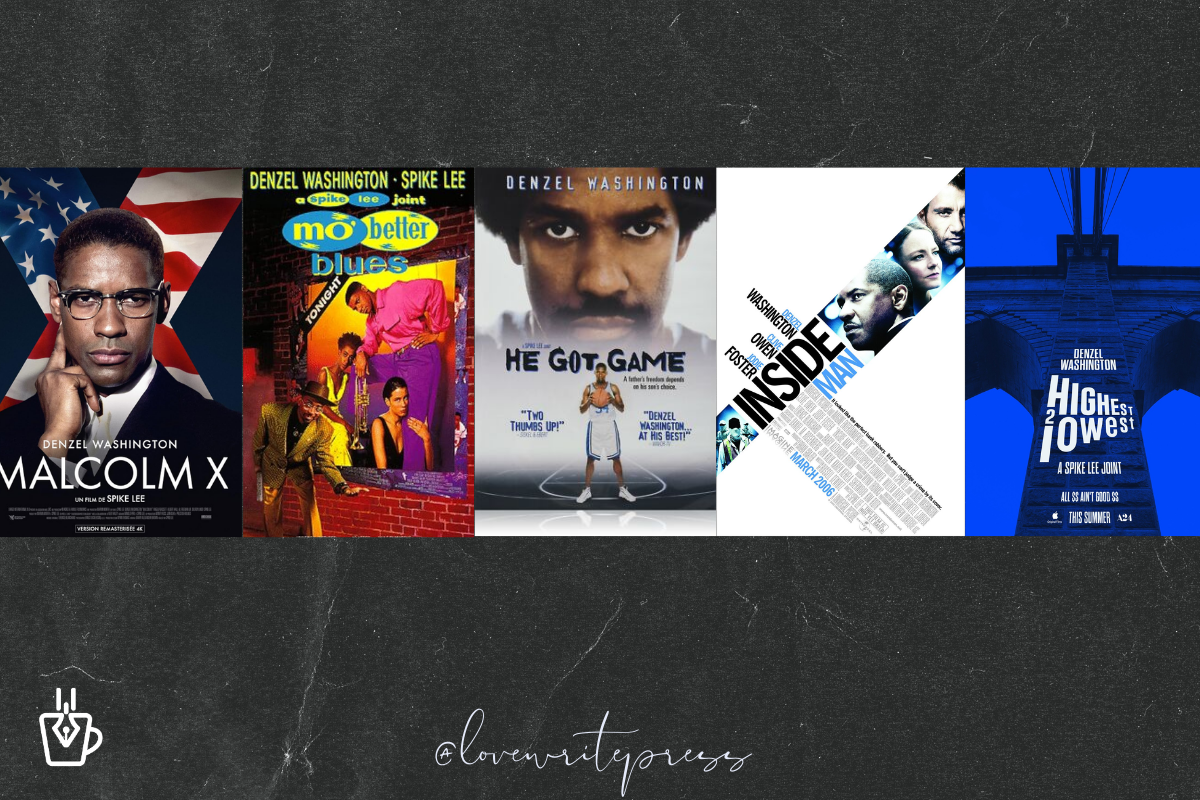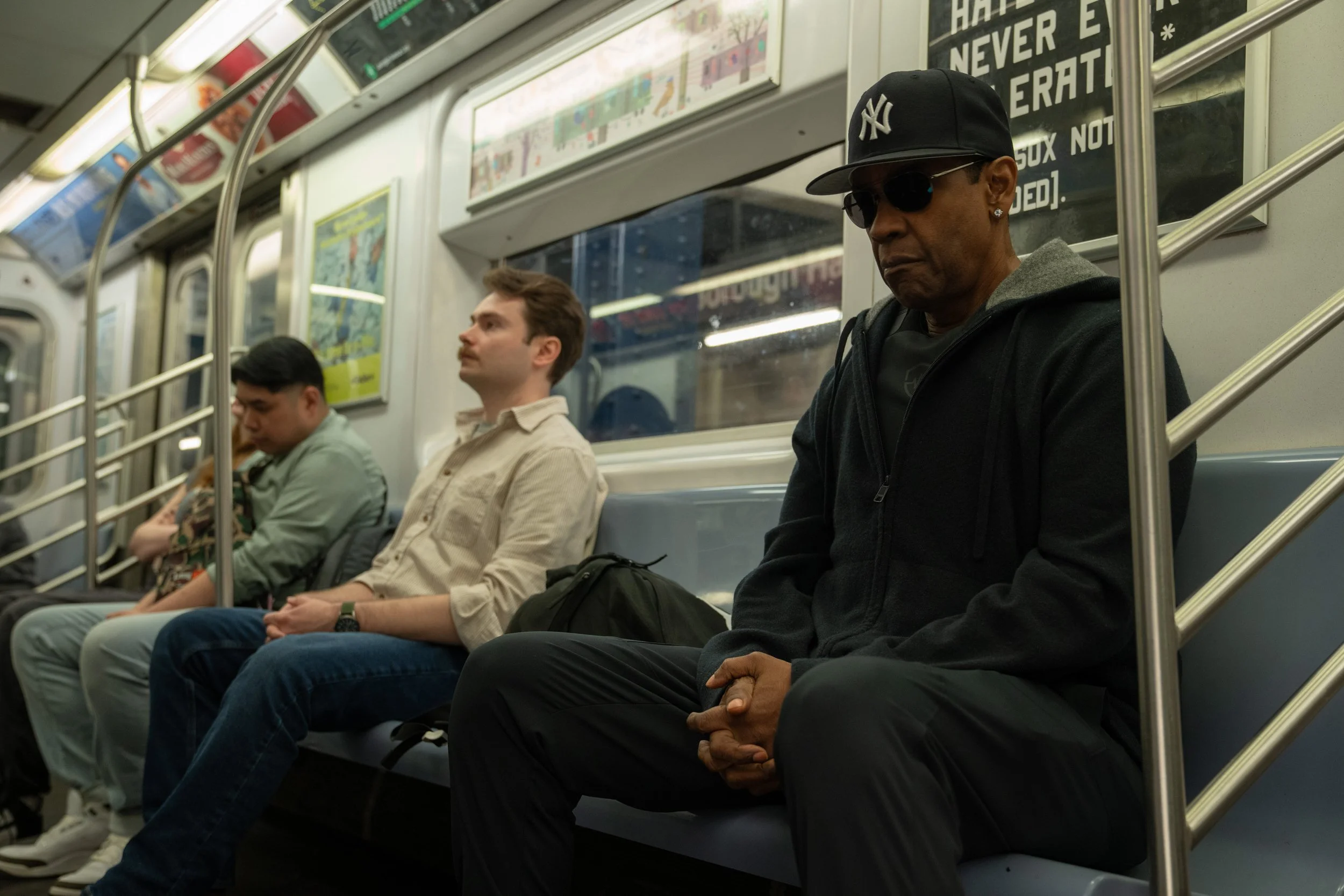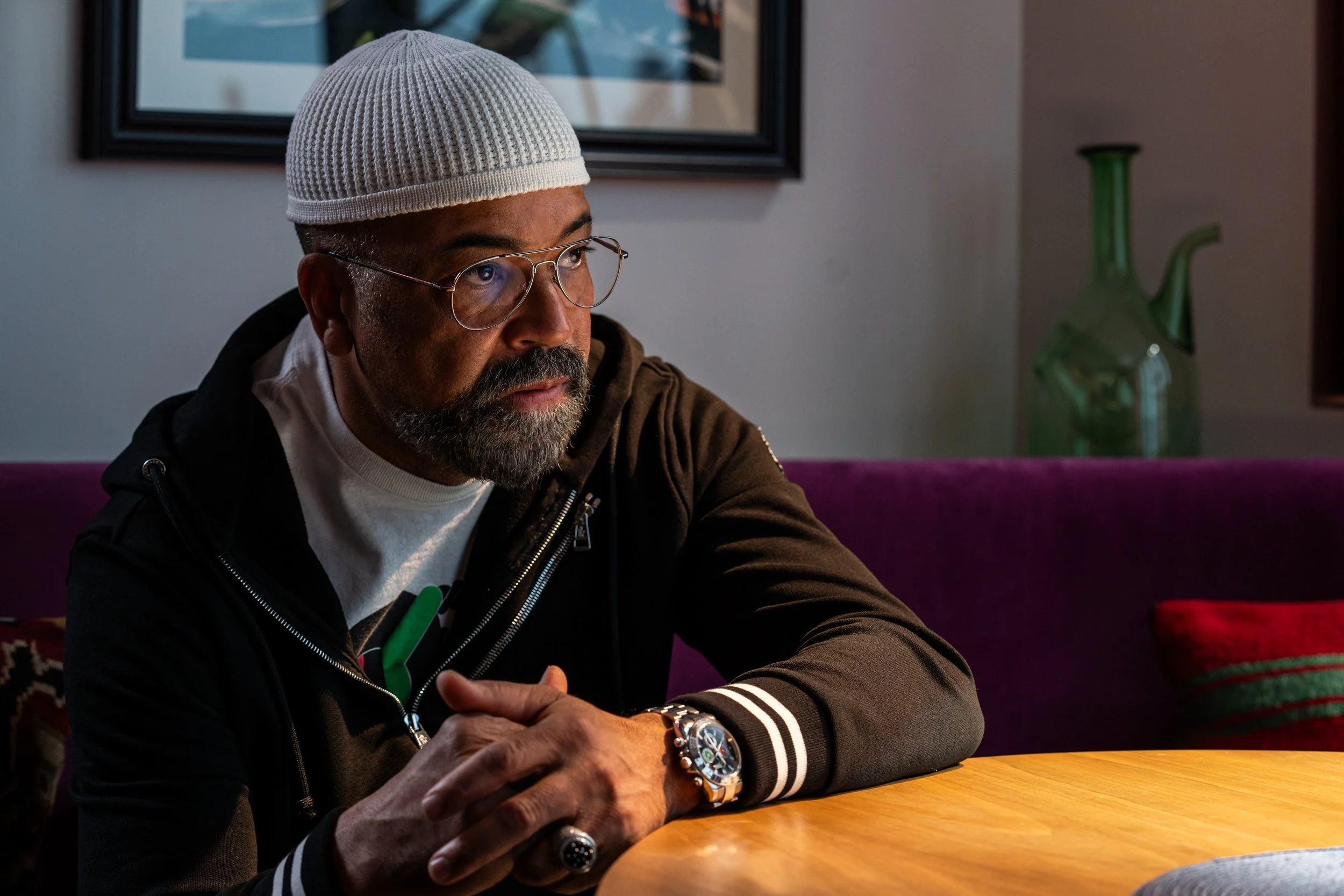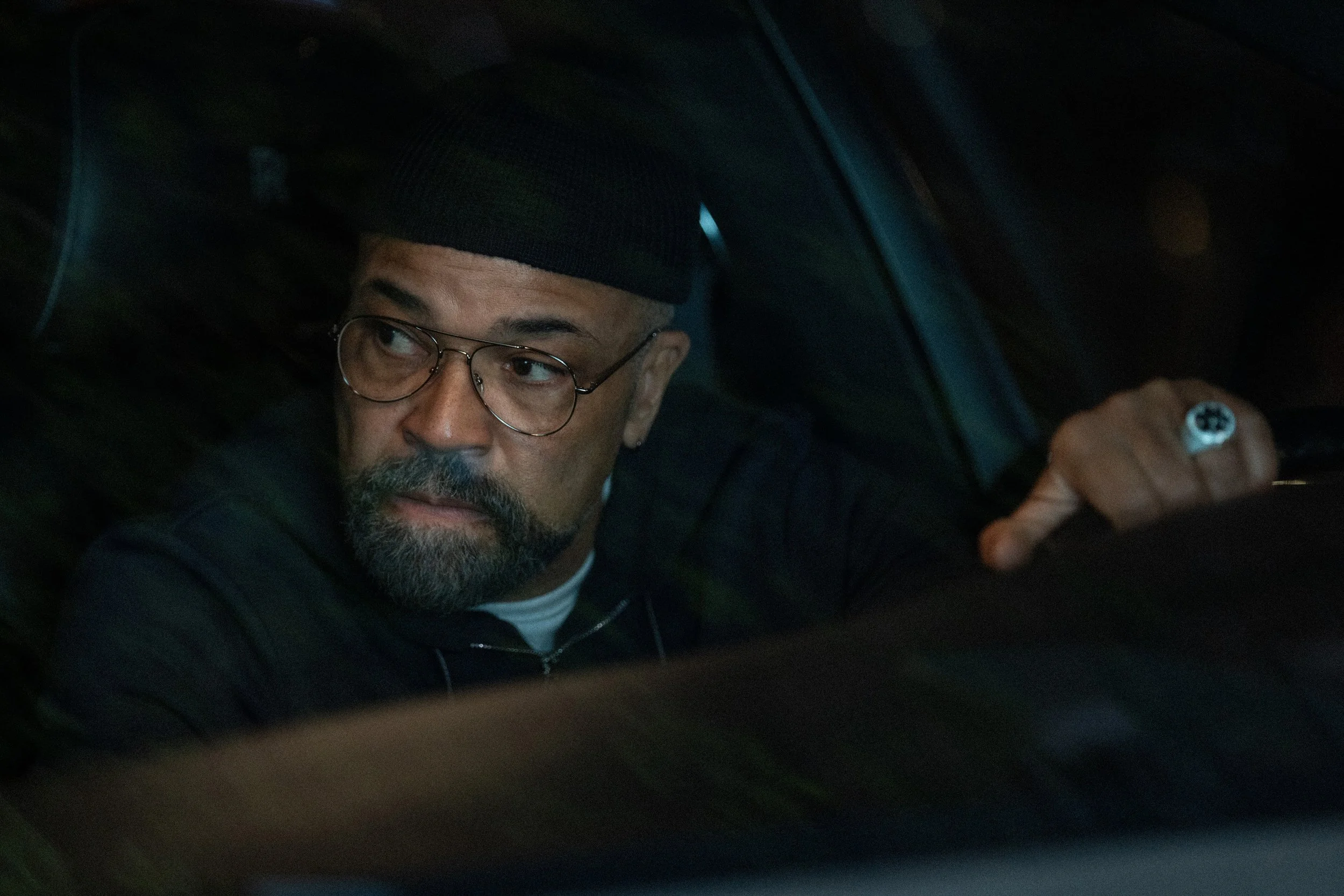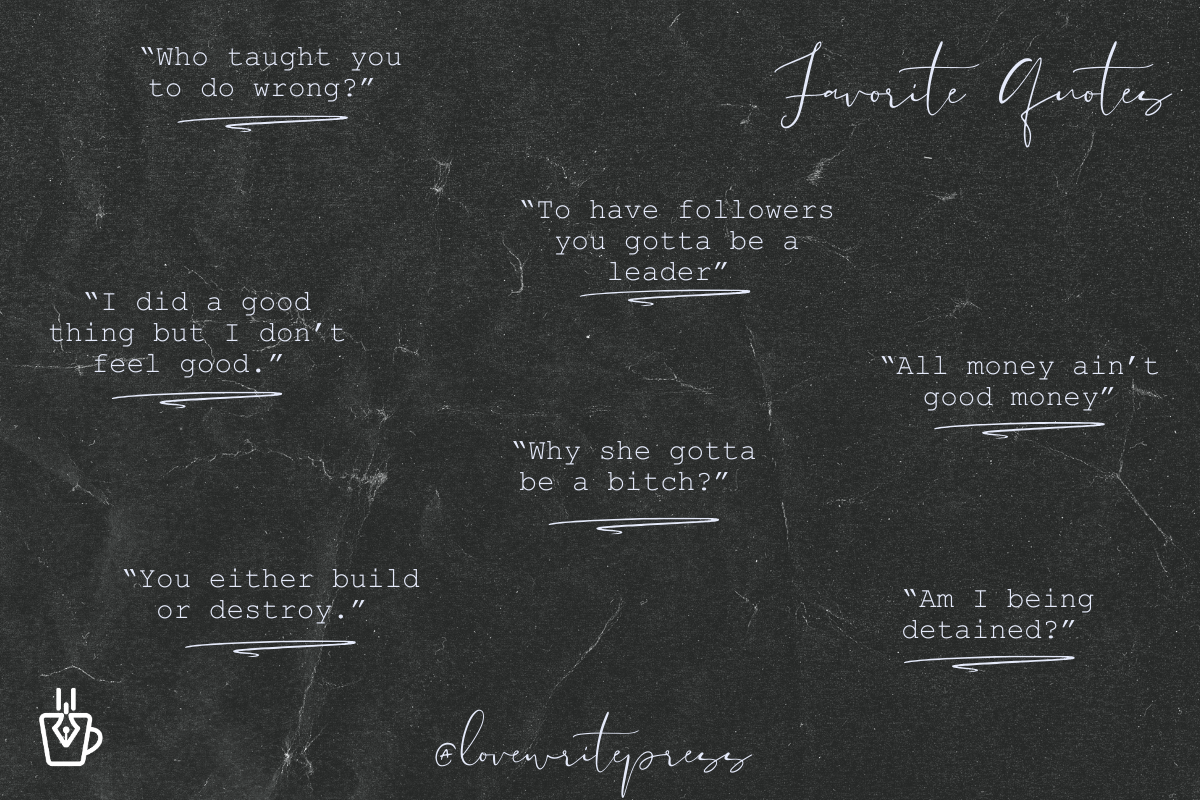The Highs and Lows of Highest to Lowest
How The Latest Spike Lee Joint Takes Religious Allegory to New Heights
Spike Lee’s newest film Highest to Lowest, starring the inimitable Denzel Washington, came to streaming via Apple TV this weekend and I, for one, was excited to sit with this film once more. When I saw it in theaters a few weeks back I was in awe of the soundscape, the beautiful shots and creative settings. But all of that came second to the plot, which was as rich, varied and fast paced as the jazz music that served as the soundtrack for much of the film.
Highest to Lowest follows music mogul David King, played by Denzel Washington, in his struggle to keep his music company in the face of numerous internal and external attacks. Co-starring Jeffrey Wright and ASAP Rocky, the movie starts out as a story of corporate intrigue but quickly shifts to a whodunnit-thriller that asks as many questions as it answers.
These questions and plot shifts have brought about much criticism, but for me, Lee and Washington’s fifth collaboration honors their tradition of marrying thought and theater in several new and necessary ways. Combining Japanese artistry, moral dilemma and religious allegory, it provides several poignant theses all in a runtime of 133 minutes.
To date, I’ve heard several mixed reviews, but I think the most important thing it does is spark conversation.
So let’s break it all down.
Note: Spoilers ahead. You have been warned.
The film opens in the home of the music mogul David King as he starts his day alongside his wife Pam played by Ilfenesh Hadera and son Trey, played by Aubrey Joseph. The location, a high-rise in Dumbo, Brooklyn filled with rare and expensive Black art establishes the family’s wealth without verbal mention, though the dialogue quickly hints at a financial dilemma that could topple the family’s economic status.
Shortly after this moment of foreshadowing, the first thesis is introduced during a carpool conversation between King and his son.
While admonishing his son’s social media usage, King states “In order to have followers, you have to be a leader.” The statement, framed as a fatherly adage serves as a touchstone referenced throughout the film, a warning for those seeking public acclaim and followers without having the true character or vision for leadership.
This moment in the film also serves to introduce religious allegory into the film, as King’s conversation with his son begins to incorporate biblical references of “preachers” and “the promised land.”
Soon thereafter, it becomes clear that the character of David King is an allusion to King David of biblical Israel, a leader with his own moral failings and a gift for music. Just as King David mades missteps that put his kingdom in jeopardy, so does David King in the form of making his company, Stackin’ Hits, public and subsequently losing creative control. The company, which has struggled in regards to popularity and hits, is scheduled for sale but King wants to stop the sale and return the company to its former glory. To do it, he’s prepared to leverage all that he owns to buy controlling shares of the company.
Just as it seems King will pull off his corporate coup, he gets a call saying that his son, Trey, has been abducted and the kidnappers are demanding a ransom of $17 million.
This is where the plot shifts from corporate espionage to whodunnit.
As with any whodunnit, there are a host of potential culprits: King’s business partner whose unsure about tanking the acquisition, King’s son, who could be trying to get money from his parents in his own rebellious act, the cops themselves, whose incompetence seems almost too egregious to not be intentional, or even an aggrieved artist.
But for the police, it’s clear that Paul, the Kings’ formerly incarcerated driver, played by Jeffrey Wright, is a prime suspect. His treatment by the police brings the second thesis of the film into focus — in matters of race, money matters.
Paul is questioned, dismissed and disregarded — even after it’s revealed that the kidnappers have grabbed the wrong boy mistakenly and its actually Paul’s son, Kyle who is missing.
Jeffrey Wright’s character repeatedly asks after his son and uses every resource he has to protect his son, but without King’s status or wealth, he comes to clearly see that his son’s life, while worthy, may not be worth quite as much as Trey King’s.
Denzel’s character is then faced with a moral dilemma — should he still pay the ransom the kidnapper demands, even though his child is no longer in harm’s way.
Of course, we’d all like to say that paying the money, even if it is millions of dollars, is worth saving a young boy’s life. But King must weigh the cost — it’s not only a boy’s life in the balance, it’s his company — the ransom money is money that he would use to buy controlling shares and without it, he could face financial ruin.
This dilemma alludes to the second religious allegory of the film: that of the judgement of King Solomon. King Solomon was King David’s son, the result of an adulterous affair he’d had with one of his soldier’s wife, Bathsheba. For those who are unfamiliar, two women came to King Solomon claiming to be the mother of an infant child. King Solomon ordered the baby to be cut in half so that each mother could have a part of the child. In his wisdom, Solomon knew that the mother who truly loved the child would relinquish her claim so that the child could live.
Denzel’s character in this moment mirrors the moral quagmire of the baby’s true mother. He can keep his label but risk destroying it in the process or he could relinquish ownership of it and hope for a better outcome.
Is his professional and economic ruin worth the life of his friend’s son? Well, as the film states “It’s complicated.” Though in his son Trey’s eyes, it’s not. As the younger King says “It’s just fucking money.”
The younger King also points out that socially, the entire family could face ruin if they don’t save Kyle.
His council and wisdom in this moment brings to light the third religious allegory of this film which is the connection between King David, a king who accomplished many great feats in his youth but also had great missteps, and his son Solomon, who comes to be known as one of the wisest kings to ever live.
Trey, whose already facing social media backlash, knows that his father’s legacy and label will be at risk, money notwithstanding, if he doesn’t save Kyle. Denzel’s character has to decide — does he risk getting cancelled to save the label, or use his money pay the ransom and possibly lose his label forever?
Ultimately, King agrees to pay the money though it remains unclear whether he made the decision to save Paul’s son or to save his own reputation. Like he says “it’s complicated.”
Once the decision is made , “it’s showtime.” Shot on subway trains and against the backdrop of the Puerto Rican day parade and a Yankees game day, with a host of other Spike Lee familiars, including Ms. Rosie Perez, this ransom exchange and the chase that ensues after it was a masterclass in cinematography and shot composition. The use of mopeds in particular grounded this chase in a realism that isn’t often associated with action sequences that usually feature the fastest and most expensive cars. The drivers evaded the police skillfully, even managing to infuse humor when the cops finally caught one of the drivers and the bag only had tampons in it.
Needless to say the cops didn’t recover the money, but the social acclaim is almost immediate — people on social media began sharing King’s actions, records from his label began selling. But King’s character, now out of 17 million dollars, and in clear danger of losing his label, is left wondering if the social acclaim has any actual worth. Especially when he’s accused of fraud for paying the ransom and he’s betrayed by his business partner.
Soon, King and his driver Paul take things into their own hands to track down the money. A world class producer, he picks up on a song that Kyle recalls hearing repeatedly while captured and traces the song back to the culprit, a rapper named Young Felon played by ASAP Rocky who has idolized King’.
As King sits down and speaks with Felon’s baby mother, another thesis of the film is revealed — how envy poisons the admired as well as the admirer. When Young Felon comes face to face with King in that studio, you can see his admiration warring with his envy and jealousy. We get a rap battle and a conversation where King tries to impart wisdom on a younger artist whose beyond listening — a poignant criticism on much of the generational conversations that take place today.
When Young Felon tries to shoot King’s character, saying “You hear me now,” you can clearly see how much of the violence of the youth stems from cries for help and perceived neglect. The second subway chase that follows leads to an altercation between Felon and King that is both a repudiation and a loving correction. Felon nearly falls to his death but is caught by King, Felon says “just let me die” showing how thin the line between homicide and suicide truly are.
In the wake of this altercation, King recovers his fortune and Young Felon finally achieves the acclaim he’d hoped for, even as he sits in jail. He sits down for a conversation with King where he tells him, “You was at your highest I was at my lowest” and explains how he wanted to bring King “to hell with [him].”
Then Felon offers King the chance to take advantage of his newfound notoriety and sign him to Stackin’ Hits, bringing the record label back into success. This conversation reiterates an earlier thesis of the film — all money, ain’t good money, and neither is all attention.
When the story began, enter the story King is trying to hold onto his empire. By the end, we see him ready to let it go, along with the music and image he’d cultivated alongside it, making way for something more pure.
In the final moments of the film we see King finally listen to one of the artists his son has been recommending, a young woman named Sula who sings “you mistook my youth for innocence” — another lyric hinting at generational misunderstanding, another thesis of the film.
Highest to Lowest provides a study in pros and cons. It tackles several weighty concepts and conflicts in a way that is signature to Spike Lee, allowing a chorus of characters to speak and illuminate important points, even if those characters are minor to the story. Like in earlier classics like Do the Right Thing and School Daze, every piece of the story is speaking and working. For some, that structure may have been overwhelming, but for this writer, it was brilliant.
Though the film has received mixed reviews, I would encourage everyone to watch it for themselves, in its entirety, before jumping on the bandwagon of opinions. After all, this phenomenon of listening to social media without any consideration for nuance, context or truth is one of the central points in the movie.
You can watch or stream Highest to Lowest on Apple TV or see it in theaters nationwide.


